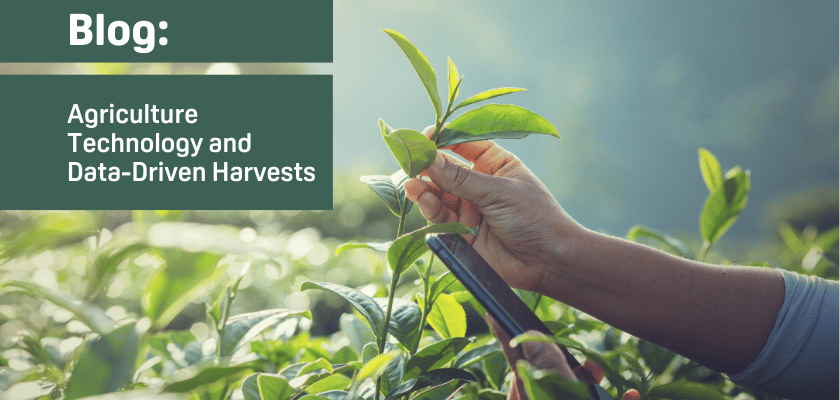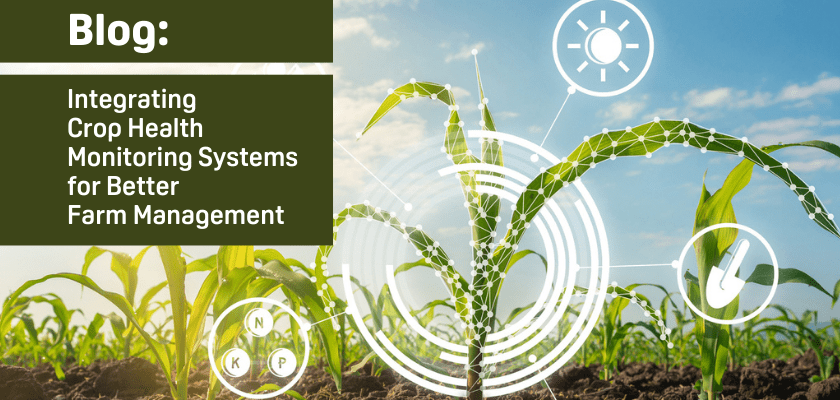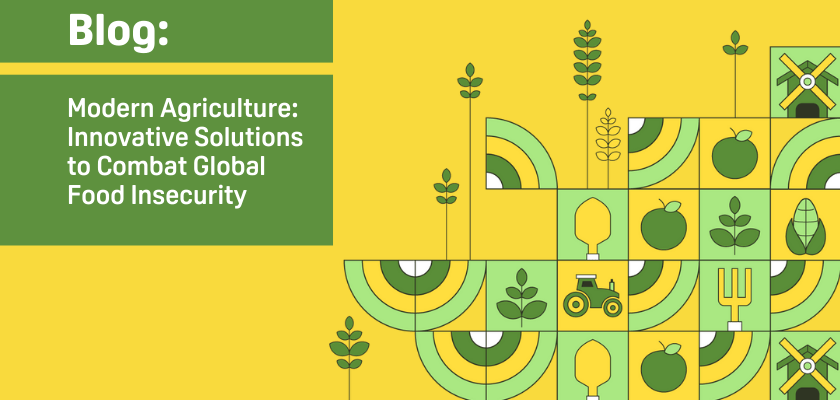

What is Sustainable Agriculture
The goals of sustainable agriculture, include increasing profitable farm income, promoting environmental stewardship, enhancing the quality of life for farm families and communities, and meeting the rising global demand for human food and fiber needs. This multidirectional approach is designed to protect the environment, expand the Earth's natural resource base, and maintain and improve soil fertility.
Published on 03 January 2024
Sustainable Agriculture: Cultivating a Greener Tomorrow
Sustainable agriculture, often referred to as green agriculture or environmental agriculture, is a holistic approach to farming that prioritizes long-term ecological balance and self-sustaining farm systems. At its core, sustainable agriculture practices aim to promote the intensification of agriculture while mitigating the negative impacts on the environment. It has a set of practices, which include environmentally conscious farming techniques and technologies.
Environmentally Friendly Practices for a Sustainable Future
- Organic Agriculture: Cultivating Sustainability: Organic agriculture is a cornerstone of sustainable farming practices, emphasizing the exclusion of synthetic chemicals and genetically modified organisms. By prioritizing natural methods like composting, crop rotation, and biological pest control, organic farming promotes soil health, biodiversity, and self-sustaining agricultural ecosystems. This approach contributes to defining sustainable agriculture by reducing environmental impact and supporting the production of sustainable, chemical-free food.
- Enhancing Agricultural Diversity with Crop Rotation and Polyculture: Sustainable agriculture practices, such as crop rotation and polyculture, focus on diversifying crops within a single field. By alternating plant species and avoiding monoculture, farmers can enhance soil fertility, reduce the risk of pests and diseases, and maintain sustainable food production. This approach aligns with the principles of ag sustainability and defines sustainable agriculture by fostering resilience and environmental balance.
- Powering Sustainable Farms with Renewable Energy Resources: Integrating renewable energy sources, such as solar or wind power, into agricultural operations contributes to self-sustaining farms and sustainable agriculture development. By reducing dependence on non-renewable energy, farms can enhance environmental agriculture practices and achieve a more sustainable and resilient energy infrastructure.
- Minimizing Environmental Impact with Tillage Management: Adopting conservation tillage practices minimizes soil disturbance, preserving soil structure and health. This sustainable agriculture method aligns with defining sustainable agriculture by preventing soil erosion, improving water retention, and reducing the environmental impact associated with traditional plowing.
- Agroforestry: Harmonizing Agriculture with Ecosystems: Agroforestry blends agricultural practices with the cultivation of trees, creating integrated and sustainable farming systems. This approach not only provides additional income streams for farmers but also enhances biodiversity, improves soil health, and sequesters carbon. Embracing agroforestry aligns with sustainable agriculture methods and supports the overall goals of sustainable farming and environmental agriculture.
- Water Conservation Strategies: Nurturing Sustainability in Agriculture: Implementing water conservation strategies is integral to sustainable agriculture, addressing environmental concerns and ensuring long-term viability. Practices such as rainwater harvesting, efficient irrigation techniques, and precision agriculture contribute to sustainable food production. By prioritizing water sustainability in agriculture, farmers actively engage in environmentally conscious practices, fostering the principles of green agriculture and ag sustainability.
- Precision Agriculture Technologies: Exploring cutting-edge precision agriculture technologies is crucial for advancing sustainability in farming. This involves utilizing GPS guidance, drones, IoT sensors, and data-driven insights to optimize resource management, enhance crop yields, and minimize environmental impact. Precision agriculture aligns with the principles of sustainable agriculture, incorporating innovative tools for efficient and eco-friendly farming practices.
- Balancing Biodiversity and Pest Control with Integrated Pest Management: Integrated Pest Management (IPM) is a holistic approach that emphasizes natural pest control methods, reducing the reliance on chemical pesticides. By combining various strategies like utilizing natural predators, practicing crop rotation, and selecting pest-resistant plant varieties, IPM helps maintain a balanced ecosystem. This approach aligns with sustainable agriculture practices, promoting biodiversity and minimizing environmental impact.
Sustainable Agriculture vs. Conventional Agriculture: A Comparative Overview
- Philosophy and Approach:
- Sustainable Agriculture: Emphasizes long-term environmental health, economic profitability, and social equity. It seeks to minimize the environmental impact of farming, promote biodiversity, and ensure the well-being of present and future generations.
- Conventional Agriculture: Primarily focuses on maximizing crop yields and profitability through intensive practices. It often involves the use of synthetic chemicals, genetically modified organisms (GMOs), and monoculture.
- Soil Management:
- Sustainable Agriculture: Prioritizes soil health through organic practices, crop rotation, cover cropping, and minimal soil disturbance. Aims to build and maintain soil fertility naturally.
- Conventional Agriculture: Relies heavily on chemical fertilizers, pesticides, and herbicides. Tends to involve more intensive tillage, which may contribute to soil erosion and degradation.
- Pest and Disease Control:
- Sustainable Agriculture: Promotes natural pest control methods, such as integrated pest management (IPM), companion planting, and biological controls. Strives to reduce reliance on synthetic pesticides.
- Conventional Agriculture: Often relies on chemical pesticides to control pests and diseases. The use of genetically modified crops resistant to pests is common.
- Biodiversity:
- Sustainable Agriculture: Encourages crop diversity, polyculture, and agroforestry to enhance biodiversity. Aims to create ecosystems that support a variety of plant and animal species.
- Conventional Agriculture: Frequently involves monoculture, where large areas are dedicated to a single crop. This can lead to a reduction in biodiversity and increased vulnerability to pests and diseases.
- Resource Utilization:
- Sustainable Agriculture: Focuses on efficient use of resources, including water and energy. May incorporate renewable energy sources and precision agriculture technologies.
- Conventional Agriculture: Can be resource-intensive, relying heavily on non-renewable energy sources, large-scale irrigation, and chemical inputs.
- Economic Considerations:
- Sustainable Agriculture: Aims for economic sustainability by considering long-term environmental and social impacts. May involve certification for organic or sustainable practices.
- Conventional Agriculture: Often prioritizes short-term economic gains through maximizing yields and reducing production costs.
Advantages of Sustainable Agriculture:
-
Environmental Conservation: Sustainable agriculture minimizes the negative impact on the environment by reducing chemical use, conserving water, and promoting soil health. This contributes to biodiversity conservation and the overall health of ecosystems.
-
Long-Term Viability: Sustainable farming practices are designed to be economically viable over the long term. By prioritizing soil health, crop diversity, and resource efficiency, sustainable agriculture helps ensure the continued productivity of farmland.
-
Resilience to Climate Change: Sustainable agriculture practices, such as agroforestry and water conservation, can enhance a farm's resilience to climate change. Diverse crops and water-efficient strategies help mitigate the impact of changing weather patterns.
-
Improved Soil Health: Practices like crop rotation, minimal tillage, and organic farming contribute to improved soil structure and fertility. Healthy soil supports better crop yields and reduces the need for synthetic fertilizers.
-
Economic Benefits: While there may be initial costs associated with adopting sustainable practices, the long-term economic benefits can outweigh them. Improved resource efficiency, reduced input costs, and access to premium markets for organic products contribute to economic sustainability.
Disadvantages of Sustainable Agriculture:
-
Transition Challenges: Transitioning from conventional to sustainable agriculture can pose challenges for farmers. It may require changes in practices, equipment, and mindset, which can be initially daunting.
-
Lower Yields in Some Cases: Sustainable practices often involve downsizing crop production slightly to prevent nutrient leaching from the soil. This can be a disadvantage for mass agriculture, where maximizing crop yields is a priority.
-
Market Barriers: While demand for sustainable products is growing, there may still be market barriers or limited access to premium markets for sustainably produced goods. This can affect the economic incentives for farmers.
-
Knowledge and Education: Successful implementation of sustainable agriculture practices often requires knowledge and education. Farmers need to understand new methods and technologies, and ongoing education is crucial for continued success.
-
Dependency on Weather Conditions: Certain sustainable practices, such as rain-fed agriculture, are highly dependent on weather conditions. Climate variability can pose challenges and impact the predictability of yields.
Why Sustainable Agriculture Is Needed?
The United States Department of Agriculture (USDA) emphasizes the importance of sustainable agriculture as a comprehensive approach to address the challenges posed by conventional agricultural practices. The goals of sustainable agriculture, as outlined by the USDA, include increasing profitable farm income, promoting environmental stewardship, enhancing the quality of life for farm families and communities, and meeting the rising global demand for human food and fiber needs. This multidirectional approach is designed to protect the environment, expand the Earth's natural resource base, and maintain and improve soil fertility.
For those interested in exploring how Doktar's innovative solutions can transform your agricultural practices, visit our website for detailed information on all our products. Stay updated with the latest developments by following us on Instagram and LinkedIn, where we share insights, tips, and updates about our technologies and their impact on modern farming.

Agriculture Technology and Data-Driven Harvests
The convergence of agriculture technology and data-driven solutions represents the next frontier of innovation in farming. With companies like Doktar leading the way, farmers can leverage these advancements to improve productivity, reduce environmental impact, and secure a more sustainable future for agriculture. Whether through precision agriculture, sustainable agriculture, or cutting-edge smart agriculture technology, the future of farming is bright, and data is at the heart of this transformation. Technology's positive impact on this future should inspire and motivate us all.

Integrating Crop Health Monitoring Systems for Better Farm Management
Crop health monitoring systems revolutionize modern agriculture by enabling real-time insights into plant health, reducing losses, and promoting sustainability. Tools like Doktar’s CropMap and Orbit integrate advanced technologies, empowering farmers with data-driven decisions. By enhancing efficiency and sustainability, these systems are essential for future-proofing agricultural operations.

Modern Agriculture: Innovative Solutions to Combat Global Food Insecurity
Modern agriculture combats global food insecurity with precision agriculture, sustainable practices, and biotechnology. Tools like IoT, automation, and crop innovations optimize resource use, enhance resilience, and ensure stable food supplies. By integrating smart technologies, agribusinesses address challenges like climate change and resource scarcity, paving the way for a sustainable food future.
